For amateur photographers, the dream of becoming a professional photographer can seem like an impossible feat. But how long does it take to become a professional photographer? Is it possible to become one in a day or two, or does it take years and years of dedicated practice and education? This blog post explores the time required to become a professional photographer – understanding just how much dedication, hard work, and commitment are necessary to hone your craft and become a successful photographer.
What is Photography as a profession?

To become a professional photographer, one must have an eye for composition and light, as well as technical skills such as understanding exposure settings and how to effectively use the camera equipment. Additionally, post-processing techniques are often used to help enhance a photograph’s color or contrast. A professional photographer must also be knowledgeable about the different types of cameras and lenses available, as well as understand how to choose and use one that is best suited for their specific needs.
Photographers also need to have a strong portfolio of work that demonstrates their skills, creativity, and range of experience. Photographers need to have a professional website or social media presence to showcase their work and promote their services. Additionally, networking with other photographers or potential clients is essential for success in their field.
Finally, being able to work well under pressure and meet deadlines is important for any professional photographer. It’s not always easy, but with dedication and practice a person can become a successful photographer. With the right skills and knowledge, anyone has the potential to make a living as a photographer [1].
Steps to Becoming a Photographer
Find your niche
Finding your niche is a crucial and exciting step toward becoming a successful photographer. It involves identifying and honing in on the specific type of photography that you excel at and discovering what truly sets you apart from other talented photographers out there. Whether your passion lies in capturing the breathtaking beauty of nature or in creating captivating portrait photographs that reveal the essence of your subjects, having a keen eye for detail and a knack for capturing those unique and fleeting moments will undoubtedly help you stand out from the pack. So, dive deep into your chosen niche, explore its intricacies, and let your creativity soar as you embark on your photography journey. The possibilities are limitless, and the rewards are boundless!

Develop your skills
Now that you’ve identified your niche, the next step is to start honing in on your skills and developing your craft. Whether it’s through online courses, working with a mentor, attending workshops or just getting out there and shooting as often as possible – practice makes perfect! Take the time to learn the basics of photography such as exposure settings, composition, lighting techniques and more. With enough practice and dedication, you’ll be able to create stunning images that capture the beauty of your chosen subject in a unique light.
Buy photography equipment
Having the right equipment is crucial for becoming a successful photographer. It’s not just about having a camera; it’s about investing in quality camera gear, including lenses and accessories, that can truly elevate your photography. These high-quality tools enable you to capture images with exceptional sharpness and clarity, bringing out the true beauty of your subjects.
When it comes to purchasing new equipment, it’s important to do thorough research. Consider your photography style and budget, and choose items that align with your needs and preferences. Additionally, don’t overlook the importance of essential accessories such as memory cards, batteries, tripods, and lens filters. These seemingly small additions can make a big difference in enhancing your photographic capabilities and ensuring a smooth shooting experience.
Remember, photography is an art form that requires attention to detail and a creative eye. By investing in the right equipment and accessories, you’re setting yourself up for success in capturing stunning images that truly stand out. So, take your time, explore your options, and embrace the world of possibilities that awaits you in the realm of photography.
Learn how to operate your camera and editing software
Now that you’ve got your photography equipment, it’s time to learn how to use it! Start by familiarizing yourself with the features and settings of your camera. It’s important to understand how each part works so you can take full advantage of its capabilities. Additionally, learning about exposure settings and composition techniques will enable you to create high-quality images with consistency.
Next, pick up some editing software such as Adobe Lightroom or Photoshop and start exploring its features. You can use these programs to enhance your photos and make them look even more stunning. From adjusting exposure levels and color balance to adding filters and effects, the possibilities are endless! So, take the time to learn how to properly operate your camera equipment and editing software to ensure a successful photography journey.

Take lots of photos in different styles
Once you’re comfortable with your equipment and software, it’s time to get out there and start shooting! Practice makes perfect, so keep taking lots of photos in different styles and genres. This will not only help you develop your eye for photography but also allow you to explore and refine your artistic vision.
Experiment with various techniques, such as long exposure, macro, or portrait photography, to expand your creative horizons. Don’t be afraid to play with angles, perspectives, and lighting to add depth and visual interest to your images. Remember, photography is a journey of continuous learning and growth, so embrace each opportunity to capture moments and tell stories through your lens. And above all, enjoy the process and have fun!
Build Your Portfolio
Having a portfolio is essential for any aspiring photographer. A portfolio showcases your best work and can be used to attract potential clients. When setting up a portfolio, make sure to include both professional quality shots as well as representative samples of the type of photography you specialize in. It’s also important not to go overboard with too many images, as this can take away from the impact of your best shots. Additionally, make sure to include information about yourself such as contact details and a bio that outlines your background and experience in photography.
Use social media to promote your work
Social media can be a great way to boost your exposure as a photographer. By creating an online presence, you can connect with potential clients and share stunning images of your work with the world. In addition to showcasing your photos on platforms such as Instagram or Facebook, consider joining photography-related groups or forums for advice and feedback from other professionals.
A strong social media presence is a great way to build relationships with potential clients and showcase your work in an accessible format. So, take advantage of these digital opportunities to promote your photography and make a name for yourself!
Market your services
Now that you’ve developed your skills, bought the right equipment, and created an online portfolio, it’s time to start marketing your services! Reach out to potential clients, ask for referrals, and network with other photographers in the industry. Additionally, consider entering photography competitions as a way to gain more exposure and recognition for your work.

It’s also important to have an effective pricing strategy in place. Do some research on similar services offered by other photographers in your area and price your services accordingly. Don’t be afraid to charge what you’re worth – remember, quality work should always have a fair price.
Photography is an exciting field full of endless possibilities, so take the time to develop your skillset and create stunning images that capture life’s most beautiful moments! With the right tools and mindset, you can become a successful photographer and start your own business. So, don’t be afraid to take the plunge and pursue a photography career – it could be one of the most rewarding experiences ever [2]!
Average Time it Takes to Learn Photography: What Does it Depend on?
It is difficult to estimate the exact amount of time it takes to learn photography, as everyone’s learning style and progress will vary. However, some factors can influence the speed at which you become proficient in this field.
The most important factor is your dedication and commitment level. If you don’t take regular practice sessions or invest enough time in understanding the basics, it will take much longer to become a proficient photographer.
Your level of natural talent can also influence how quickly you progress in photography. If you already have an eye for composition or find that most shots turn out well, your learning curve might be shorter than someone who has no prior experience with photography.
The amount of equipment you use can also affect the time it takes to learn photography. If you only have a basic camera, you will need to spend more time understanding its functions and features before progressing further. But if you have a range of lenses and other accessories, it could cut down on the learning time as you become more familiar with each piece of equipment.
Finally, your own goals can influence how quickly you become a proficient photographer. If you want to shoot professionally, it might take more time and effort than if you are looking for a hobby or something to do for fun.

No matter what your goals, dedication, and level of talent look like, becoming a photographer takes practice and patience. But with the right motivation and resources, anyone can become an expert in the field.
One way to ensure progress in photography is by taking part in classes or workshops. These can help to introduce you to various techniques and give you useful tips on how to improve your skills. Additionally, feedback from experienced photographers can provide valuable insight into how you can further develop your style and technique.
Different Career Paths for Photographers
Photography has become an increasingly popular profession, as well as a burgeoning hobby. Many different career paths aspiring photographers can take to make a living out of their passion for capturing the beauty of life through photography.
One career path is wedding and studio photography. Wedding photographers specialize in capturing special moments at weddings, such as the bride and groom’s first kiss, the exchange of wedding bands, or a heartfelt speech by one of the guests. Studio photographers capture high-quality portraits and product shots for clients such as magazines or fashion brands.
Sports photography is another career option that involves shooting dynamic action shots of athletes playing their respective sports. Sports photographers need to be able to capture split-second moments with precision timing and accuracy.
Event photographers are specialists in capturing important moments at social gatherings, such as birthday parties or corporate events. They work with clients to understand their vision for the event, then set up the necessary equipment to capture memorable photographs of people enjoying themselves or engaging in thoughtful conversations.
Nature photography is a type of photography that focuses on capturing nature’s beauty and its various elements, such as animals, plants or landscapes. Nature photographers must have great knowledge of the environment they are shooting to take pictures that will truly uniquely capture nature’s beauty.
Finally, aerial photography is a type of photography done from an aircraft or drone that captures wide-angle shots from an elevated perspective. Aerial photographers may specialize in shooting pictures of landscapes, cities or buildings.
No matter what kind of photography you choose to pursue, having a good eye for composition and an understanding of light will help make your photos stand out from the rest. With dedication and practice, you can turn your love of taking photographs into a successful career [3].

Equipment Needed for Professional Photography
Whether you’re shooting weddings, sports events or nature, professional photography requires the right gear to get the job done.
A good camera is a must-have for any photographer. Digital SLRs are a popular choice among professionals for their ability to take high-resolution pictures and their manual settings. Other cameras like mirrorless models have similar capabilities but can be lighter and more convenient for on-the-go photography.
Lenses are also an important component of the equipment a professional photographer needs. Different lenses have different focal lengths, which allow photographers to capture close or wide shots depending on their needs.
Lighting is also a key part of any photographer’s toolkit. Professional photographers often use external lighting sources such as strobes or flashes to make sure they have enough light for their shots.
Finally, a tripod is an essential piece of equipment for any photographer. Tripods help keep the camera steady and ensure that pictures are not blurry or distorted.
Having the right equipment is only half of the battle; you also need to understand how to use it to take great photos. Regular practice and experimentation are essential for mastering the art of photography and becoming a professional photographer.
With dedication, knowledge and the right gear in hand, photographers can turn their passion into a successful career. With so many different paths available, aspiring photographers have plenty of opportunities to find their niche in the world of photography.

5 Mistakes in starting a career as a photographer
When starting out as a professional photographer, there are some common mistakes that you should be aware of to ensure that your career takes off in the right direction.
The first mistake is not having the necessary equipment. Having good-quality cameras and lenses will make all the difference when it comes to taking high-quality pictures. Investing in high-quality gear is essential for any photographer.
Another mistake beginners make is not understanding how to use the equipment correctly. Having a good foundation of knowledge on how to use cameras and lenses will help you take better pictures and get more bookings.
Thirdly, many new photographers underestimate the importance of marketing themselves properly. Investing in a good social media presence, creating attractive portfolios and having a website are all important for getting noticed by potential clients.
Fourthly, many photographers fail to think about the business side of photography. This includes understanding the legal aspects such as agreement forms and copyright law to ensure that you and your clients are fully protected.
By avoiding these mistakes, photographers can start their careers with confidence and set themselves up for success. With dedication, practice, knowledge and the right tools, any aspiring photographer can make a career out of taking amazing photographs.
FAQ
How hard is it to become a photographer?
Becoming a photographer is not necessarily difficult, but it does require dedication and commitment. You need to be willing to learn the basics of photography and develop your skills over time. You should also have a good understanding of lighting, composition, camera settings, and editing techniques. Furthermore, you should be able to market yourself or work with an agency to find clients who are interested in your work. Ultimately, becoming a successful photographer requires lots of hard work and dedication, but with the right attitude and knowledge, it can be achieved.
What equipment do I need to become a photographer?
The type of equipment you need as a photographer depends on what kind of photography you plan to do. For most photographers, the basics include a camera, lenses, lights, and a tripod. You may also need software to edit your photos or a laptop for on-the-go editing. Furthermore, you may want to invest in an external hard drive to store your photos and back them up safely.
What are the different types of photography?
Photography is a diverse and captivating art form, encompassing several distinct types that offer a wide range of creative possibilities. While some genres may overlap, the most popular ones include portrait photography, which focuses on capturing the essence and personality of individuals, landscape photography, which showcases the breathtaking beauty of nature, product photography, which highlights the features and qualities of various goods, event photography, which documents special occasions and gatherings, wedding photography, which immortalizes the precious moments of love and union, and fashion photography, which combines artistry and style to showcase clothing and accessories.
Each genre boasts its unique characteristics, presenting photographers with exciting challenges and opportunities to showcase their skills. However, regardless of the genre, the fundamental principles of photography, such as composition, lighting, and storytelling, remain the cornerstone of creating impactful and visually compelling images. So, whether you are drawn to capturing emotions, exploring natural landscapes, showcasing products, or immortalizing important events, photography offers a captivating world of endless creativity and expression.
How can I find clients as a photographer?
If you’re serious about becoming a professional photographer, the best way to find clients is to market yourself. You can start by creating a portfolio website to showcase your work and promote yourself on social media platforms such as Instagram, Facebook, Twitter, or Pinterest. Additionally, you should consider getting involved in local photography meetups and contributing to online forums related to your field.
Joining organizations like the Professional Photographers of America will also give you access to other photographers and clients who can help you build your network. Finally, freelancing websites like Upwork or Fiverr are great sources for finding potential clients. With the right resources and strategies in place, you can quickly get your name out there and start networking with people who may be interested in hiring you.
Is 30 too late to become a photographer?
No, it is never too late to become a photographer. No matter what age you are, you can pursue your passion for photography and hone your skills. Additionally, having more life experience may give you an advantage when it comes to understanding the emotional nuances of portrait photography or capturing moods in landscape shots. So while there may be certain challenges associated with starting a photography career later in life, it is absolutely possible and worth pursuing.
Do photographers make a lot of money?
The amount of money a photographer can make depends on the type of photography they specialize in and how successful they are at finding clients. Generally, professional photographers who are established in their field can command higher rates for their services. However, it is important to note that most photographers don’t earn a full-time living from their work and may supplement income with freelance projects or other side hustles. Nevertheless, with the right attitude and dedication, photographers can make a decent living from their passion and artistry.
What is the best type of photography to start with?
The best type of photography to start out depends largely on your interests and experience level. If you’re just starting out, portrait photography is a great place to begin since it requires minimal equipment and offers you the opportunity to practice with different angles, lighting, and composition. On the other hand, if you’re more experienced, event or wedding photography can be a very lucrative endeavor.
Is photography a good career?
Photography can be an incredibly rewarding and satisfying career. It offers endless opportunities for creativity and allows you to capture moments that will last a lifetime. Additionally, as the digital world continues to expand, more opportunities are available for photographers to showcase their artistry on various platforms and gain exposure. So while it may not be the most lucrative of professions, photography is definitely a great career choice for those who enjoy taking pictures and have a passion for creating beautiful imagery.
What qualifications do I need to become a photographer?
The qualifications required to become a professional photographer vary depending on the type of photography you are pursuing and the level of expertise you have achieved. Generally, most photographers don’t require any certificates or degrees, however having some form of education and knowledge in photography can be beneficial. Additionally, you should take the time to practice and hone your skills, explore different genres of photography, invest in quality equipment, and create a portfolio to showcase your work. With dedication and hard work, you can become a successful professional photographer.
Useful Video: How Long Does it Take to Become a Pro Photographer in 2022
Conclusion Paragraph
So, to become a photographer it can take time, effort and skill. You need to have an eye for composition, good knowledge of camera settings and equipment, and an understanding of editing techniques. With a little bit of dedication and practice, you can become a professional photographer in no time at all! Don’t be afraid to experiment with different techniques such as lighting, lenses, filters and angles to create amazing photographs. With hard work and dedication, you can be a successful photographer!
References
- https://www.careerexplorer.com/careers/photographer/
- https://www.indeed.com/career-advice/career-development/how-to-become-a-photographer
- https://www.bestcolleges.com/careers/art-and-design/photography/

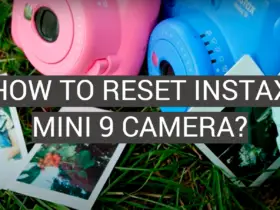




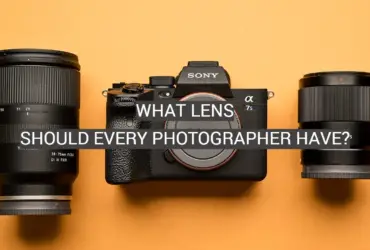
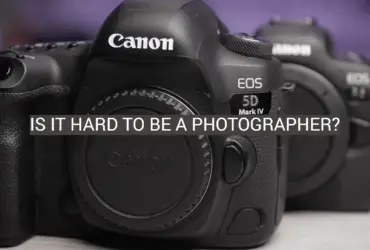
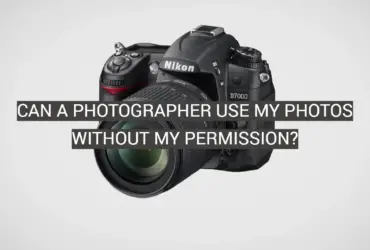


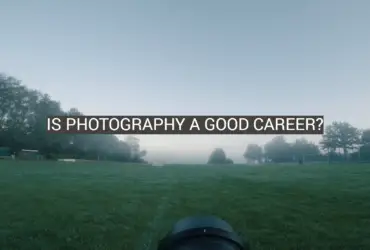
Leave a Reply